
Shot blasting, deslagging and deburring in combination - for perfect surfaces in heavy industry
, A.Altmann - Terug naar overzicht
In the world of metalworking, achieving the highest quality finish on parts and components is essential for both aesthetics and functionality. This is particularly true in industries that process thicker parts and heavy plate like the manufacturing of construction equipment, railcar, shipbuilding, etc. to name a few. Especially for those industries, precision and durability are paramount. To meet these stringent requirements, manufacturers often rely on a combination of advanced surface treatment solutions. Among these, shot blasting, deslagging, and deburring machines play crucial roles. This article will explore the importance of integrating shot blasting with deslagging and deburring machines to optimize production processes and enhance product quality.
The role of shot blasting
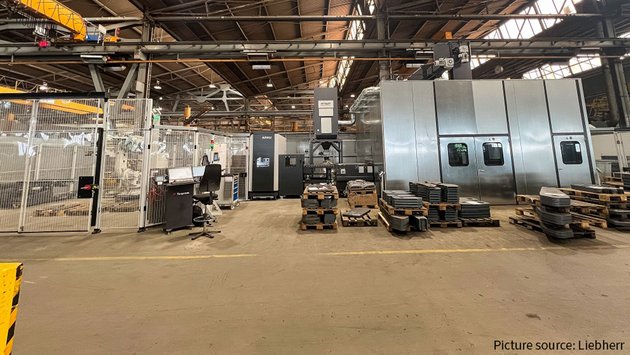
Shot blasting, a process offered by industry leaders like the Rösler Group, involves propelling various abrasive materials at high speeds onto the material surface. This technique serves several purposes:
- Surface cleaning: Shot blasting cleans the surface of the metal, removing rust, mill scale, and other contaminants. This is essential for subsequent coating or painting processes, ensuring better adhesion and durability.
- Surface preparation: It creates a specific surface profile that enhances the bonding of coatings and paints, contributing to the longevity and effectiveness of protective layers.
- Stress relief: The process can also relieve stress in metal parts, improving their mechanical properties and resistance to fatigue.
While shot blasting is highly effective, it is often just one step in a comprehensive surface treatment process. Complementing machines like deslagging and deburring machines can be added inline to have a completely automated processing line.
The necessity of deslagging
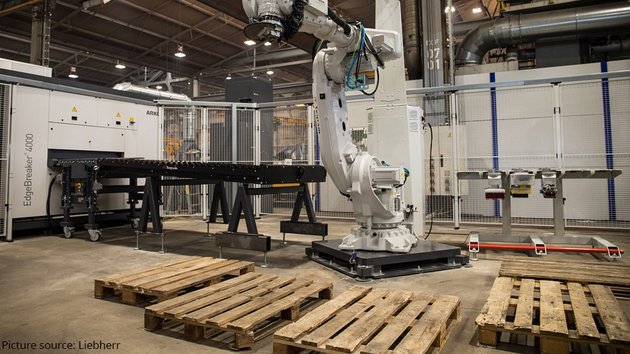
Deslagging is the process of removing slag, a byproduct created by cutting operations like flame, plasma and oxyfuel cutting. This slag usually sticks to the underside of the material after cutting. ARKU’s deslagging machine can remove all slag (if necessary double-sided) fully automatically. The benefits of incorporating deslagging into the production process include:
- Improved surface quality: Removing slag ensures slag free edges, which is crucial for both the appearance and functionality of the final product.
- Enhanced safety: Slag can create sharp edges and irregularities that pose safety hazards. Deslagging mitigates these risks, making handling and further processing safer and more efficient.
- Preparation for Subsequent Processes: A slag-free part is essential for effective shot blasting, deburring and edge rounding, ensuring that these processes achieve optimal results.
The importance of deburring and edge rounding
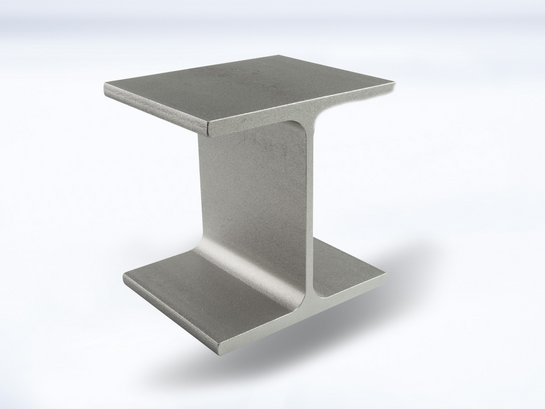
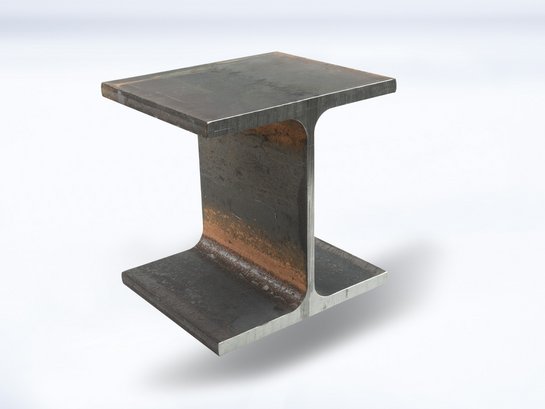
Deburring and edge roundingare critical for refining metal parts. This is done as the final step after deslagging and shot blasting. Deburring and edge rounding offer several key benefits:
- Improved aesthetics and functionality: Deburring removes any sharp edges and burrs that remain after deslagging and shot blasting. Edge rounding, rounds the edges again after shotblasting to ensure proper paint adhesion, weld prep and most importantly, safer handling of parts.
- Enhanced coating and painting: Burr-free and slightly edge rounded parts ensure that coatings and paints adhere more evenly and effectively, improving the durability and performance of protective layers.
- Increased component lifespan: By removing stress concentrators such as burrs, deburring and edge rounding can extend the lifespan of metal parts by reducing the risk of cracks and fatigue failures.
Integrating deslagging, shot blasting and deburring in a single line of machines
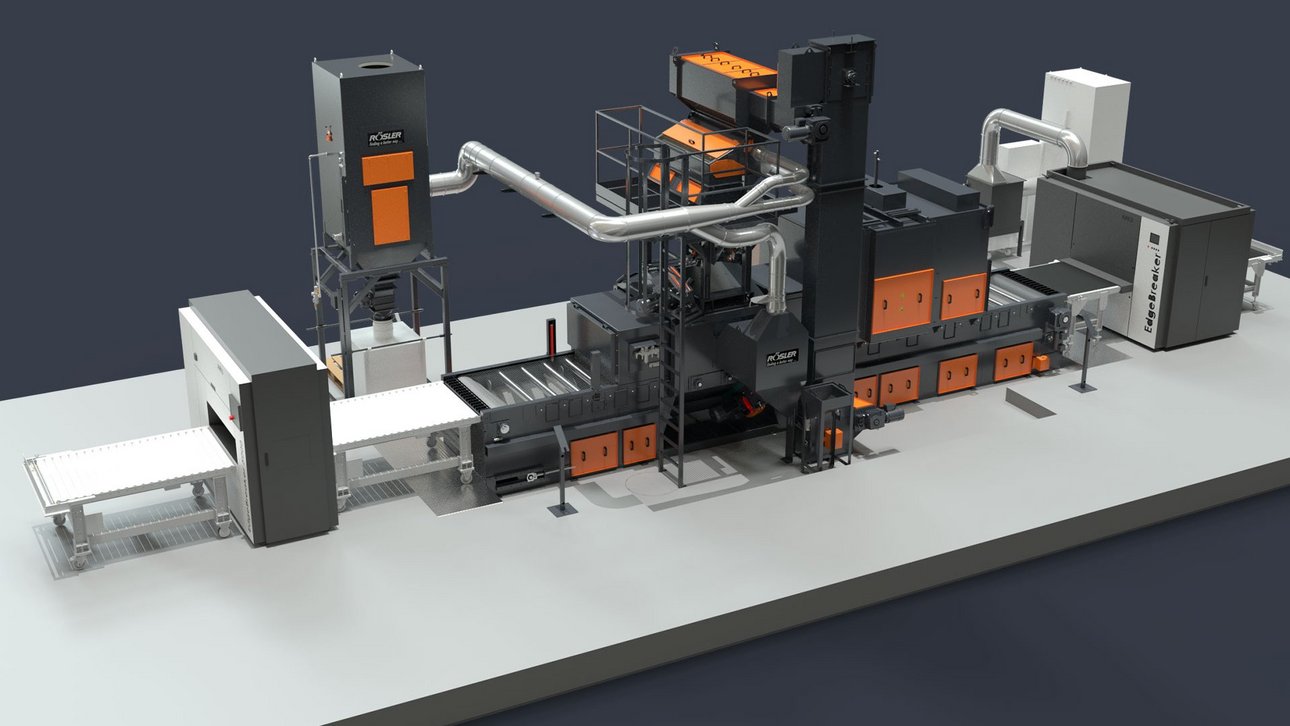
Combining shot blasting with deslagging and deburring machines offers a comprehensive solution for heavy parts & plates surface treatment. Here’s how the integration of these processes enhances production:
- Sequential efficiency: Starting with deslagging ensures that all the slag stuck the material is completely removed along the cutting edges. Followed up by shot blasting, which treats the surface by removing mill scale and rust. Lastly, deburring and edge rounding ensures any remaining burrs are now removed and all parts receive a designated degree of edge rounding.
- Quality assurance: Each step in the process builds on the previous one, ensuring that the final product meets the highest standards of quality. Deslagging removes impurities that shot blasting might leave behind, while deburring and edge rounding perfect the surface.
- Cost-effectiveness: By integrating these processes, manufacturers can streamline their production lines, reducing downtime and increasing throughput. It is also greatly advantageous to not having to process & handle thick parts and plates by hand which can cause injuries. The result is a fully automated operation that produces higher quality products consistently at lower costs.
Conclusion
Incorporating shot blasting with deslagging and deburring machines is a strategic approach to optimizing metal surface treatment. By leveraging the strengths of each process, manufacturers can achieve superior surface quality, enhanced product performance, and improved safety. This integrated approach not only meets the demanding standards of industries like the manufacturing of construction equipment and railcar components but also ensures a competitive edge in the market. For manufacturers looking to enhance their production capabilities, investing in a combination of deslagging, shot blasting, and deburring technologies is a wise choice that promises significant returns in quality and efficiency.
Source of the contents:
Press release of the company Liebherr. https://www.liebherr.com/en/
News of the company ARKU: https://www.arku.com/